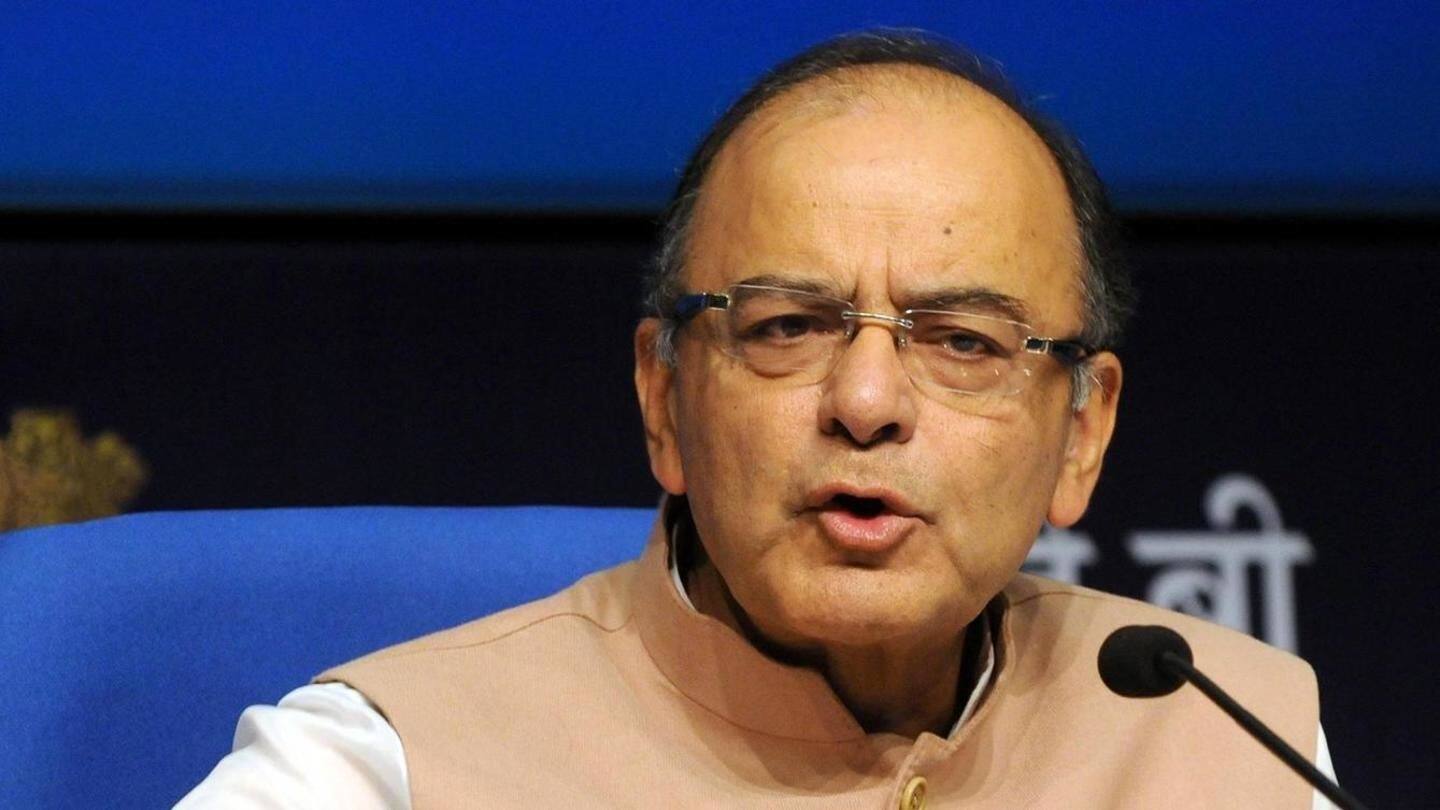
Series of reforms by Modi govt transformed economy: Arun Jaitley
What's the story
Finance Minister Arun Jaitley has cited IMF reports to highlight how the Narendra Modi-led government through a series of reforms has transformed the "weak economy" it inherited from UPA government.
Jaitley, in a Facebook post, said an analysis of what the IMF had to say in 2014 was very clear - high inflation, high fiscal deficit, high current account deficit, a standstill infrastructure.
Weak economy
2014 report talks about weak economy during UPA govt: Jaitley
The report of 2014 talks about the weak economy during the UPA government and the latest points at near-term macroeconomic outlook broadly favorable and growth forecast rising to 7.3% in FY 2018-19, Jaitley said.
"We have come a long way. The last four years have seen a series of reforms, both legislative and otherwise, which have been carried at by the government," he said.
Quote
System has been cleaned up and made more transparent: Jaitley
"System has been substantially cleaned up and made more transparent. Decisiveness has led to easier decision-making and made the economy stand out before several other countries. I would urge all to read these two reports, copy of which are now publicly available," Jaitley said.
Bilateral discussions
IMF holds bilateral discussions with its members every year: FM
The Finance Minister said the International Monetary Fund (IMF) holds bilateral discussions with its members usually every year.
"On the basis of the consultations with various experts and after analyzing the economic data, they come out with their staff report. What political parties and their representatives normally say depends on where they stand, whether in opposition or in government," Jaitley said.
Growth
Growth is expected to slow to 4.6%: 2014 report
"Growth is expected to slow to 4.6%...the lowest level in a decade, reflecting global developments and domestic supply constraints. Headline CPI inflation is expected to remain near double digits for the remainder of the fiscal year," Jaitley said quoting 2014 report.
Current account deficit was narrowing, driven by a significant improvement in exports, robust remittances flows, rapid diminution of gold imports.
Quote
India has very little room to adopt counter-cyclical policies: Report
"Nonetheless, India has very little room to adopt counter-cyclical policies, constrained by persistently-high inflation, and sizeable fiscal and external imbalances. Spillovers from renewed external pressures interacting with domestic vulnerabilities are the principal risks," the 2014 report had said.
Macroeconomic policies
Stability-oriented macroeconomic policies continue to bear fruit, says Jaitley
Taking a leaf out of 2018 report, Jaitley said, "Stability-oriented macroeconomic policies and progress on structural reforms continue to bear fruit."
"Following disruptions related to the November 2016 currency exchange initiative and the July 2017 Goods and Service Tax (GST) rollout, growth slowed to 6.7% in FY 2017-18, but a recovery is underway led by an investment pick up," he said.
Quote
Headline inflation averaged 3.6% in FY 2017-18
Headline inflation averaged 3.6% in FY 2017-18, a 17-year low, reflecting low food prices on a return to normal monsoon rainfall, agriculture sector reforms, subdued domestic demand, and currency appreciation, Jaitley said. Quoting from the report, Jaitley said economic risks were tilted to the downside.
Risk
Jaitley informs about the risks on the external side
"On the external side, risks include a further increase in international oil prices, tighter global financial conditions, a retreat from cross-border integration including spillover risks from a global trade conflict, and rising regional geopolitical tensions," Jaitley said.
Domestic risks pertain to tax revenue shortfalls related to continued GST implementation issues and delays in addressing the twin balance-sheet problems and other structural reforms, he added.